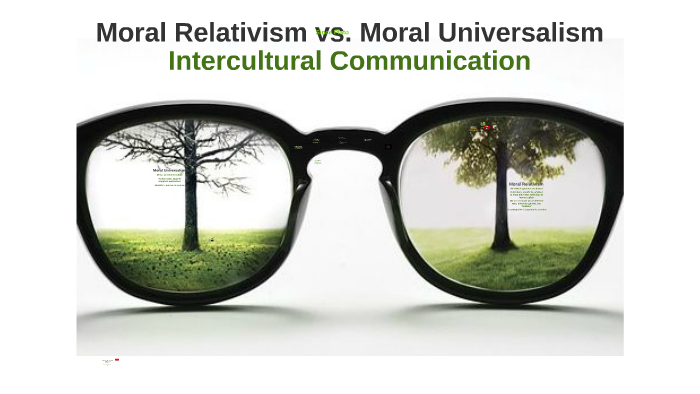Moral relativism, as a philosophical concept, posits that there are no absolute moral truths applicable to all cultures and societies. This perspective has garnered both avid support and substantial critique over the years. Understanding its significance requires dissecting the nuances that make moral relativism both an intriguing and contentious framework for ethical discourse.
At its core, moral relativism acknowledges that different cultures have distinct moral codes. What one society may deem ethically acceptable, another might consider reprehensible. This diversity raises pivotal questions: Should moral judgments be made through a universal lens, or are they inherently shaped by local customs and traditions? Furthermore, this inquiry exposes deeper reasons for fascination with relativity in morals.
On one hand, proponents of moral relativism argue that it fosters tolerance and appreciation of cultural diversity. By recognizing the validity of various ethical systems, society might cultivate a sense of compassion towards differing worldviews. For instance, practices viewed as virtuous in one society, such as communal living or certain religious rites, might appear alien or even objectionable to outsiders. Yet, understanding these actions within their cultural context can bridge realms of misunderstanding and promote peaceful coexistence.
Moreover, moral relativism can serve as a defense against ethnocentrism—the tendency to evaluate other cultures based solely on the standards of one’s own. This perspective opens up a dialogue about morality that is less about dictating right or wrong and more about engaging with differing approaches to ethical dilemmas. In this sense, organizations dedicated to social justice often employ relativistic frameworks to advocate for marginalized voices, insisting that all perspectives deserve merit.
However, the very essence of moral relativism raises troubling implications that cannot be ignored. Critics argue that asserting all ethical systems are equally valid leads to moral paralysis—the inability to condemn egregious actions. If, for example, one can find justification for human rights violations through a cultural lens, the normative power of universal human rights disintegrates. Thus, actions such as genocide or slavery might be defended on relative grounds, complicating global efforts to establish baseline ethical standards. The potential for moral relativism to inadvertently endorse heinous acts presents a daunting conundrum.
This disjunction touches on a broader philosophical debate regarding the existence of universal values. Is it conceivable to arrive at a set of moral axioms that transcend cultural variances? Some philosophers advocate for moral objectivism, arguing that certain ethical truths are innate and applicable to everyone, irrespective of geography or tradition. The insistence on objective morality prompts inquiries into whether universality can coexist harmoniously with cultural differences—a fundamental aspect of human experience.
Furthermore, the advent of globalization intensifies the relevance of this discourse. As cultures collide and intermingle, the question of moral relativism becomes more pronounced. The proliferation of communication technologies facilitates cross-cultural interactions, leading to increased awareness of disparate moral codes. Yet, while these exchanges can enrich societal understanding, they can simultaneously challenge traditional norms, inducing moral dilemmas for societies grappling with the implications of adopting foreign ethical standards.
Consider, for instance, the ongoing debates surrounding issues like climate change. Indigenous philosophies often prioritize a harmonious relationship with nature, contrasting sharply with industrialized societies predicated on exploitation of natural resources. Moral relativism invites a reevaluation of environmental obligations; however, if relativism leads to the acceptance of detrimental ecological practices, the resultant consequences could prove catastrophic for our planet. It becomes crucial to navigate a path that respects cultural heritage while also recognizing the universality of environmental stewardship.
In educational contexts, discussions of moral relativism offer fertile ground for cultivating critical thinking. Analyzing moral dilemmas through multiple lenses encourages a generation to grapple with complex ethical issues rather than relying on spoon-fed answers. Students exposed to relativistic frameworks may develop nuanced worldviews, better equipped to handle the intricacies of modern life, especially in diverse societies faced with multifaceted challenges.
The tension between moral relativism and its opposing viewpoints encapsulates a pivotal aspect of philosophical inquiry—its ever-evolving nature. As society continues to face challenges that defy simplistic answers, including global crises, social justice issues, and technological advancements, the importance of examining the implications of moral relativism remains paramount. The crux lies in responsible engagement with the ethical landscape with a commitment to coexistence, justice, and ecological sustainability.
In conclusion, moral relativism stands as a double-edged sword capable of enlightening and ensnaring. While it can promote understanding and tolerance of cultural differences, the dangers of moral paralysis and the potential permissiveness towards harmful actions necessitate caution. Engaging in this complex dialogue demands a careful balance between respecting cultural norms and advocating for universal human rights. These considerations are critical, especially as the world continues to evolve in an increasingly interconnected manner, wherein collective ethical frameworks are more vital than ever.
